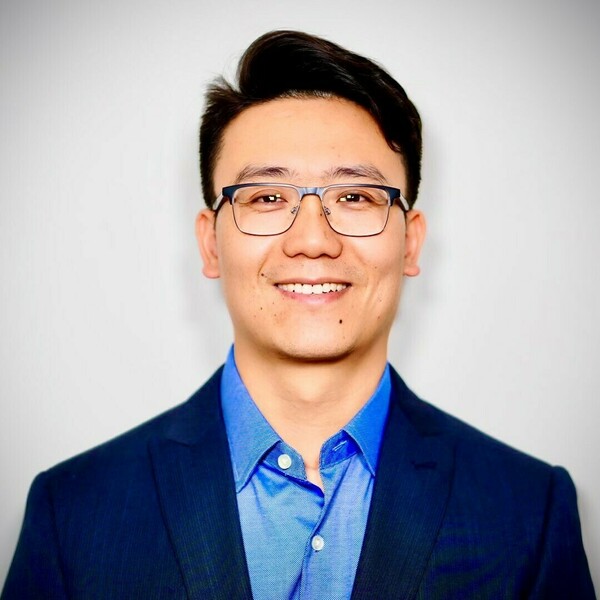Jianneng Li Archibald Assistant Professor

Research Interests:
Prostate cancer is a hormone-dependent malignancy, tumor progression depends on androgen receptor (AR) presence and function, and the endogenous ligands for AR, testosterone (T) and 5α-dihydrotestosterone (DHT), are the main androgens fueling the growth of malignant cells. Currently, direct inhibitions of AR and androgen synthesis are the main strategies, which makes antiandrogens, such as enzalutamide (ENZ) and abiraterone, are widely used in the prostate cancer therapy. Unfortunately, antiandrogen resistance happens to almost all the advanced prostate cancer patients and eventuates into disease lethality, hence, developing new treatment strategies to circumvent resistance is critical and urgent.
Multiple mechanisms of antiandrogen resistance have been determined, such as AR amplification, mutation, splice variant and loss of AR dependence through lineage plasticity, and so on. Most recently, glucocorticoid receptor (GR) take over AR function confers ENZ resistance has been reported by many groups. And my works have discovered in models of prostate cancer and patient tissues that sustained tumor cortisol concentrations via downregulation of 11β-hydroxysteroid dehydrogenase 2 (11β-HSD2) protein as well as an increase in hexose 6 phosphate dehydrogenase (H6PD) protein contribute to ENZ resistance. Which together suggest that the GR pathway, including glucocorticoid metabolism, is a critical player in antiandrogen resistance.
Our laboratory will continuously focus on the functions of steroid hormones including their precursors and receptors in prostate cancer as well as related diseases. Specifically, the core areas of study in our lab in the near future include but not limited to the following topics:
- GR pathway in supraphysiologic androgen therapy in antiandrogen-resistant prostate cancer
- Corticosteroids in prostate cancer
- 11β-HSD2 in prostate cancer
- The inactivation of steroid hormone receptors in normal physiology and diseases
To achieve the aims in our projects, we will collaborate with worldwide laboratories and integrate all the resources from the state-of-art research core facilities in Notre Dame and other institutes, utilize a variety of cutting-edge approaches, such as CRISPR/Cas9 knockout and activation screening, genome editing, fluorescence imagine, Cryo-electron microscopy, small molecule library screening etc..
In our laboratory, we put all our efforts on searching for the disease vulnerabilities through exploring the basic scientific questions as well as defining the mechanisms underlying prostate carcinogenesis and drug resistance, with our ultimate goal to translate our bench findings to bed side.
Our lab will open in January 2023. We welcome the interested research technicians, postdocs, graduate students, and undergraduates to join our team and make the amazing things happen together. Work hard and play hard is not what we want, what we want and insist on is to make our work and our play indistinguishable!
Biography:
- Archibald Assistant Professor, Department of Biological Sciences, University of Notre Dame, IN 2023
- Research Associate, Department of Cancer Biology, Lerner Research Institute, Cleveland Clinic, OH 2021-2023
- Postdoctoral fellow, Department of Cancer Biology, Lerner Research Institute, Cleveland Clinic, OH (Mentor: Nima Sharifi)2013-2021
- Ph.D. (Biophysics), Fudan University, Shanghai, China (Mentor: Kang Sun) 2008-2013
- B.S. (Biological Sciences), Shanghai Ocean University, Shanghai, China 2004-2008
Selected Publications:
- Baratchian M, Tiwari R, Khalighi S, Chakravarthy A, Yuan W, Berk M, Li J, Guerinot A, de Bono J, Makarov V, Chan TA, Silverman RH, Stark GR, Varadan V, De Carvalho DD, Chakraborty AA, Sharifi N. H3K9 methylation drives resistance to androgen receptor-antagonist therapy in prostate cancer. Proc Natl Acad Sci U S A. 2022 May 24;119(21):e2114324119. doi: 10.1073/pnas.2114324119. Epub 2022 May 18. PubMed PMID: 35584120.
- Li J, Berk M, Alyamani M, Sabharwal N, Goins C, Alvarado J, Baratchian M, Zhu Z, Stauffer S, Klein EA, Sharifi N. Hexose-6-phosphate dehydrogenase blockade reverses prostate cancer drug resistance in xenograft models by glucocorticoid inactivation. Sci Transl Med. 2021 May 26;13(595). doi: 10.1126/scitranslmed.abe8226-PubMed PMID: 34039740
- Gao X, Dai C, Huang S, Tang J, Chen G, Li J, Zhu Z, Zhu X, Zhou S, Gao Y, Hou Z, Fang Z, Xu C, Wang J, Wu D, Sharifi N, Li Z. Functional Silencing of HSD17B2 in Prostate Cancer Promotes Disease Progression. Clin Cancer Res. 2019 Feb 15;25(4):1291-1301. doi: 10.1158/1078-0432.CCR-18-2392. Epub 2018 Sep 18. PubMed PMID: 30228209; PubMed Central PMCID: PMC6377858.
- Zhu Z, Chung YM, Sergeeva O, Kepe V, Berk M, Li J, Ko HK, Li Z, Petro M, DiFilippo FP, Lee Z, Sharifi N. Loss of dihydrotestosterone-inactivation activity promotes prostate cancer castration resistance detectable by functional imaging. J Biol Chem. 2018 Nov 16;293(46):17829-17837. doi: 10.1074/jbc.RA118.004846. Epub 2018 Sep 27. PubMed PMID: 30262668; PubMed Central PMCID: PMC6240862.
- Dai C, Chung YM, Kovac E, Zhu Z, Li J, Magi-Galluzzi C, Stephenson AJ, Klein EA, Sharifi N. Direct Metabolic Interrogation of Dihydrotestosterone Biosynthesis from Adrenal Precursors in Primary Prostatectomy Tissues. Clin Cancer Res. 2017 Oct 15;23(20):6351-6362. doi: 10.1158/1078-0432.CCR-17-1313. Epub 2017 Jul 21. PubMed PMID: 28733443; PubMed Central PMCID: PMC5641243.
- Alyamani M, Li Z, Berk M, Li J, Tang J, Upadhyay S, Auchus RJ, Sharifi N. Steroidogenic Metabolism of Galeterone Reveals a Diversity of Biochemical Activities. Cell Chem Biol. 2017 Jul 20;24(7):825-832.e6. doi: 10.1016/j.chembiol.2017.05.020. Epub 2017 Jun 22. PubMed PMID: 28648378; PubMed Central PMCID: PMC5533090.
- Li J, Alyamani M, Zhang A, Chang KH, Berk M, Li Z, Zhu Z, Petro M, Magi-Galluzzi C, Taplin ME, Garcia JA, Courtney K, Klein EA, Sharifi N. Aberrant corticosteroid metabolism in tumor cells enables GR takeover in enzalutamide resistant prostate cancer. Elife. 2017 Feb 13;6. doi: 10.7554/eLife.20183. PubMed PMID: 28191869; PubMed Central PMCID: PMC5305204.
- Li Z, Alyamani M, Li J, Rogacki K, Abazeed M, Upadhyay SK, Balk SP, Taplin ME, Auchus RJ, Sharifi N. Redirecting abiraterone metabolism to fine-tune prostate cancer anti-androgen therapy. Nature. 2016 May 26;533(7604):547-51. doi: 10.1038/nature17954. PubMed PMID: 27225130; PubMed Central PMCID: PMC5111629.
View all of Publications: https://www.ncbi.nlm.nih.gov/myncbi/jianneng.li.1/bibliography/public/